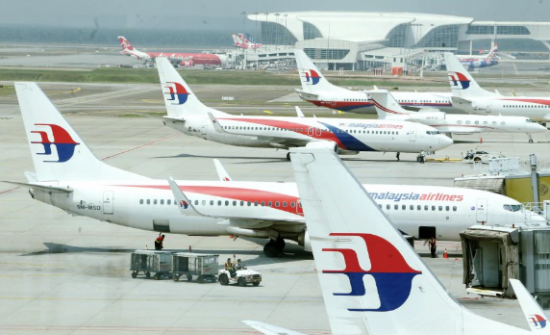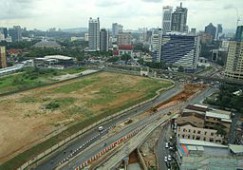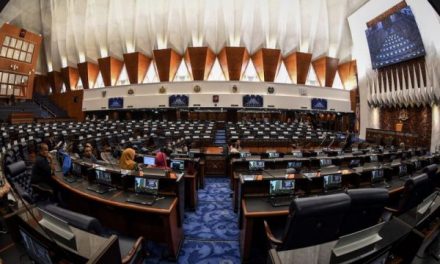Property transactions expected to spike despite Covid-19 pandemic
The property market is expected to see more transactions despite the Covid-19 pandemic. Raine and Horne International senior partner Michael Geh said this is based on the property transaction trends released by the National Property Information Centre (NAPIC), which showed a spike in property transactions in 3Q20. He believes it will continue to spike in 4Q20 and into this year. As for the number of overhang or unsold properties in the country, Geh said a lot of the unsold commercial units in Klang Valley are empty offices and lots in shopping complexes due to under-occupancy. “As for residential properties, a lot of the unsold units are those located in undesirable locations and a high percentage are unreleased Bumiputera lots,” he said. He said most of the overhang units are located at the fringes of areas with very low demand particularly in Johor, Perak and Kedah. “This year will be a promising year especially with the economic recovery where a majority of the industries believe that the affordable housing segment will be the contributing factor to the recovery,” Penang state exco Jagdeep Singh Deo said. (Malay Mail)
World Bank: Malaysia GDP to recover in 2021 on effective vaccine deployment
Malaysia’s economy is expected to return to positive growth this year, along with other economies globally on the sustained progress in the vaccine rollouts that will boost consumption worldwide, the World Bank Group said. Its Macroeconomics, Trade and Investment Global Practice lead economist, Richard Record said the group expects the vaccine deployment can be mostly completed in 2021 in most economies, leading to strong recovery and demand, as well as boosting trade and commodity prices. “We are projecting a global growth of 4.0% this year. As for Malaysia, we project economic growth this year to range between 5.6% and 6.7%,” he said. Record noted that China is among the reasons of growth recorded by the Asian economies and Malaysia included. However, he warned that risks to growth outlook include the unexpected delay in vaccine rollout, ineffective containment, elevated number of vulnerable households and domestic political uncertainty. (The Star Online)
GOMSPV to spearhead provision of 5G infrastructure
The provision of 5G infrastructure in the country will be led by a government-owned entity or Government of Malaysia Special Purpose Vehicle (GOMSPV) regulated by the Malaysian Communications and Multimedia Commission (MCMC), Communications and Multimedia Minister Datuk Saifuddin Abdullah. He said the provision and management of 5G infrastructure by GOMSPV involving an investment of RM15 billion over a period of 10 years would enable the distribution of 5G capacity to telecommunications companies (telcos) in a fair and transparent manner. He said the model would also allow telcos to save on capital expenditure and avoid infrastructure duplication if they built them on their own. According to him, the infrastructure sharing model under GOMSPV will enable telcos to provide wider 5G coverage at competitive costs to consumers, while generating higher returns. In addition, he said telcos could focus on efforts to expand their fiberoptic network and strengthen 4G coverage throughout the country, especially in rural areas. According to Saifuddin, good coverage, high digital literacy, affordable costs, and dynamic innovation will contribute to the competitive digital economy ecosystem as intended under MyDIGITAL launched by Prime Minister Tan Sri Muhyiddin Yassin on Friday. (Bernama)
Khazanah Nasional to inject RM3.6bil in Malaysia Airlines
Khazanah Nasional Bhd, the sole shareholder of Malaysia Airlines Bhd, has committed to inject RM3.6 billion in new capital into the national carrier’s holding company Malaysia Aviation Group Bhd (MAG), to fund the group’s business until 2025. As of November 2020, a total of RM28 billion had been injected into Malaysia Airlines by Khazanah. The latest commitment follows Malaysia Airlines’ RM16 billion debt restructuring plan that was given the green light by the UK High Court today, with the deal set to complete by early next month. Key elements of the restructuring so far include network cuts, structural cost savings, cash conservation and payment deferral initiatives, which translated to RM5.5 billion in savings in 2020. It is aiming for another RM397 million in savings for the first quarter of 2021. (The Edge)

Malaysia remains attractive for e-commerce
Malaysia remains an attractive market for e-commerce in Southeast Asia, thanks to its dynamic economy, developed enrapture for digital technologies, qualified talent pool and sizeable young population. Domestic Trade and Consumer Affairs Minister Datuk Seri Alexander Nanta Linggi said Malaysia’s e-commerce sector was on a growth trajectory, benefiting from the implementation of programmes under the National eCommerce Strategic Roadmap’s (NeSR) six thrust areas. The National eCommerce Council (NeCC), comprising various ministries and agencies, was established to drive the implementation of the roadmap towards doubling Malaysia’s e-commerce growth rate. The government’s intervention is in six thrust areas, namely to accelerate seller adoption of e-commerce, increase adoption of eProcurement by businesses, lift non-tariff barriers (e-Fulfillment, cross-border, e-Payment, consumer protection), realign existing economic incentives, make strategic investments in select eCommerce player(s) and promote national brand to boost cross-border e-commerce. Even though e-commerce is delivering unprecedented product choice, convenience and price transparency, the platform had also presented consumers with a number of new risks, such as identity theft and theft of credit card information. Online shopping platforms should consider improving their policies when it comes to allowing businesses to use their platform to arbitrarily price their goods. (NST Online)





